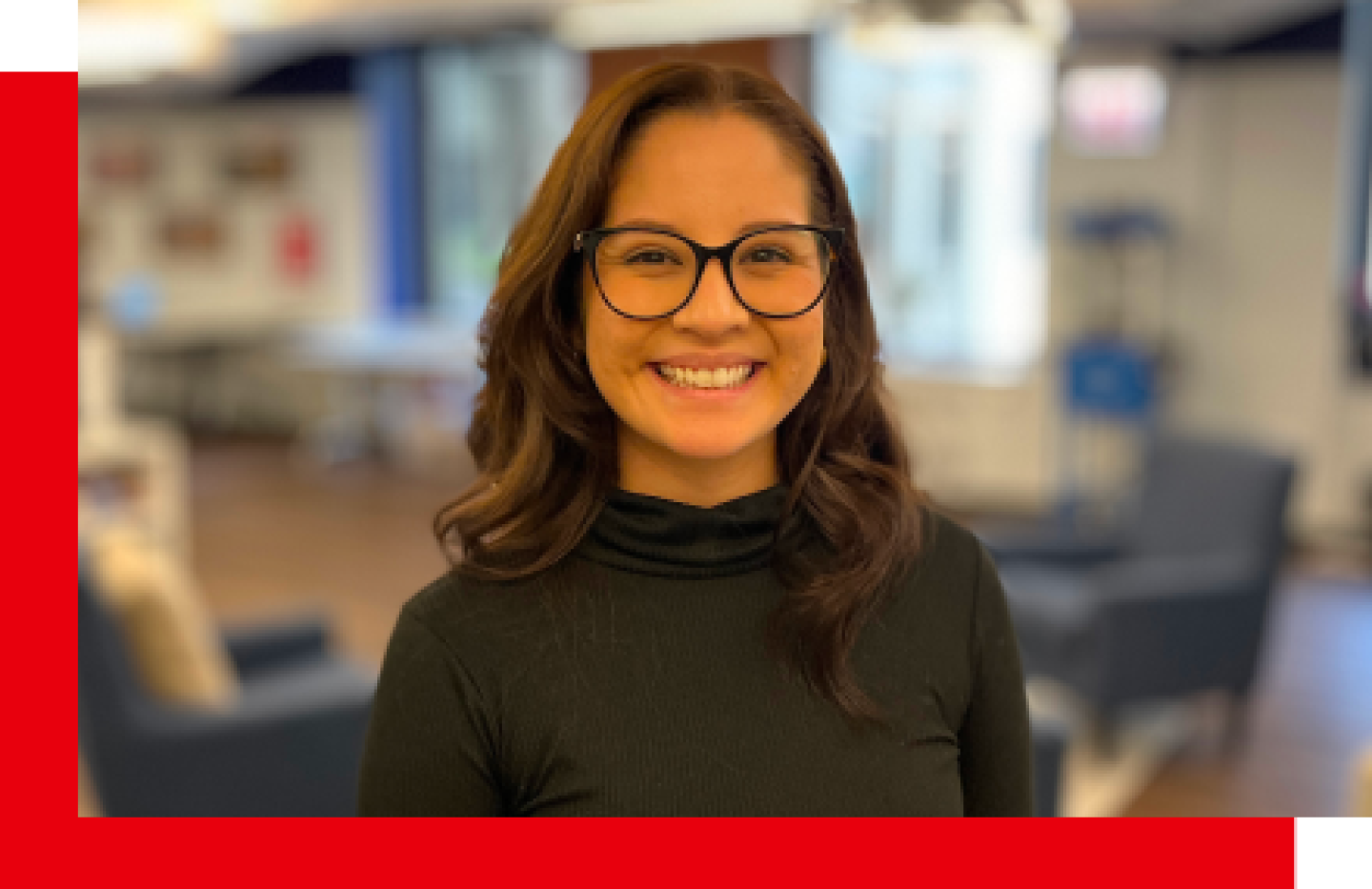Help every learner thrive: Earn your master’s in high incidence disabilities at KU
Every classroom includes students with high incidence disabilities: learning disabilities, emotional and/or behavioral disorders, mild cognitive disabilities, or autism spectrum disorder—who benefit from specially designed instruction and skilled advocacy. KU’s online master’s in high incidence disabilities equips you with research-backed methods you can apply right away, from Universal Design for Learning (UDL) to multitiered systems of support (MTSS), so you can remove barriers and improve academic and behavioral outcomes.
For more than 50 years, the KU Department of Special Education has set the standard in both research and practice. Ranked among the top online special education programs in the nation,1 this master’s program offers two paths:
- Teacher track: Prepare for the added high incidence endorsement in Kansas
- Non-teacher track: Build advanced expertise without pursuing licensure
This program is a Master of Science in Education (M.S.E.) degree in special education with an emphasis in high incidence disabilities. In order to enroll in this program, a bachelor's degree is required.
Program details
- 100% online with no campus visits required
- Two options: Teacher track and Non-teacher track
- 11 courses (33 credit hours)
- 8-week courses for focused study
- Complete in as few as two years
- Accredited under NCATE/CAEP standards
- No GRE required for admission
Choose your high incidence disabilities track
Teacher track (M.S.E.)
For licensed educators ready to earn a high incidence endorsement
If you hold a teaching license and want to specialize in serving students with high incidence disabilities, the teacher track integrates rigorous coursework with two supervised practica so you can apply evidence-based strategies in real educational settings and complete the requirements for an added endorsement.*
What you'll master:
You’ll develop deep expertise in assessment, instructional design, and behavior supports for students with high incidence disabilities across grade levels. Coursework emphasizes UDL, MTSS, content-area strategy instruction, functional behavioral assessment, positive behavior supports, and effective collaboration with families and interprofessional teams. Your learning culminates in a master’s project: a professional online portfolio that showcases growth, artifacts, and reflections.
The online master’s in high incidence disabilities teacher track meets the educational requirements for the added endorsement in the state of Kansas if the candidate already holds an initial or professional teaching license. None of KU’s special education online programs lead to initial licensure.
Choose this track to:
- Complete two supervised fieldwork practica in PK-12 settings
- Build a professional portfolio aligned to program competencies
- Prepare for the Kansas high incidence disabilities endorsement requirements
Build skills for careers like:
- PK-12 special education teacher (high incidence)
- Resource/inclusion specialist
- IEP case manager
- Behavior interventionist
- MTSS coordinator
- Special education consultant
Non-teacher track (M.S.E.)
For education professionals not seeking teaching licensure
Designed for professionals who want graduate-level expertise without pursuing an endorsement, the non-teacher track focuses on high incidence disabilities knowledge and practical application across educational and community contexts. Instead of practica, you’ll complete two graduate electives that broaden your instructional and cultural competence.
What you'll master:
You’ll learn to assess student needs, implement evidence-based instructional and behavioral strategies, and apply UDL and MTSS frameworks to improve learning conditions for students with high incidence disabilities. You’ll also strengthen collaboration skills with families, paraeducators, and multidisciplinary teams. Your program concludes with a master’s project and professional portfolio.
This program does not lead to initial or advanced licensure/endorsement in special education.
Choose this track to:
- Build a working portfolio you can use immediately in your role
- Strengthen impact as a consultant, advocate, or program coordinator
- Replace practica with two graduate curriculum and teaching electives
Build skills for careers like:
- Special education consultant or advocate
- Program coordinator or administrator
- Educational specialist in community/government settings
- General education teacher seeking deeper SPED expertise (non-endorsement)
Advance your skills, expand your impact
The University of Kansas online education programs are built for people who want to make a difference—in classrooms, schools, and communities. Whether you’re a teacher, administrator, parent, nonprofit professional, you’ll find programs that connect research to practice and provide tools you can put to use right away. With flexible online courses and dedicated faculty support, KU helps you grow your expertise while continuing the important work you’re already doing.
- ✓ 8-week focused courses
- ✓ Evidence-based, research-driven curriculum
- ✓ Practical skills you can apply immediately
- ✓ Top-ranked by the U.S. News & World Report*
*Retrieved on February 17, 2026, from usnews.com/education/online-education/university-of-kansas-155317
Complete the form below to receive more information about your selected program, straight to your inbox.
Practicum experience
In the teacher track, you’ll complete two supervised practica designed to integrate your coursework with authentic PK-12 teaching experiences:
- SPED 775 – Practicum with Exceptional Children & Youth – High Incidence
- SPED 875 – Advanced Practicum with Exceptional Children & Youth
What to expect:
- Real-world application: Complete targeted teaching and support activities, typically in your current work setting where possible.
- Expert supervision: Engage in small-group supervision led by KU faculty who provide detailed feedback and coaching.
- Diverse contexts: Gain experience across inclusive/resource environments and collaborate with families and school teams.
- Preparation and documentation: Practicum expectations, documentation, and placement requirements vary by district/site. Background checks and site approvals may be required.
Have practicum questions or need help planning your placement?
Schedule a call to speak with an admissions outreach advisor.

Master’s in high incidence disabilities course descriptions
KU’s online courses build a strong foundation in assessment, instructional methods, behavior supports, collaboration, and transition planning for students with high incidence disabilities. All courses listed are worth 3 credits.
Please note: Course list and sequence are subject to change.
SPED 730 Characteristics, Methods, and Assessment: Introduction to Struggling Learners & Students With High-Incidence Disabilities
SPED 741 Methods and Assessment: Literacy Interventions for Struggling Learners & Students With High-Incidence Disabilities
SPED 743 Methods: Functional Behavioral Assessment, Positive Behavior Support, and Classroom Management
SPED 775 Practicum With Exceptional Children & Youth – High Incidence (Teacher Track Only)
SPED 841 Advanced Methods & Assessment: Learning Strategy & Content Mastery for Struggling Learners & Students With High-Incidence Disabilities
SPED 843 Advanced Methods and Assessment: Strategies for Students’ Significant Behavior, Social & Emotional Needs
SPED 854 Family and Interprofessional Collaboration in Special Education
SPED 856 Transition Education and Services From Childhood Through Adulthood
SPED 875 Advanced Practicum With Exceptional Children & Youth (Teacher Track Only)
EPSY 715 Understanding Research in Education
SPED 898 Master’s Project
C&T 709 Foundations of Curriculum and Instruction (Non-Teacher Track Only)
C&T 807 Multicultural Education (Non-Teacher Track Only)
Licensure disclosure
KU’s licensure programs strive to maintain accurate and up-to-date information about the educational requirements for licensure in U.S. states and territories. However, regulations are subject to change and varying interpretations. In addition to possible changes in educational requirements, licensure often includes additional requirements, such as specific examinations and additional training or practicum hours. It is highly recommended that students seek guidance from the appropriate licensing agency before beginning an academic program to ensure they know what is needed to obtain the license/certification/registration in the state in which they intend to practice and/or seek licensure. For more information, visit our licensure disclosures page: soehs.ku.edu/current-students/licensure/disclosures

Advance inclusion for students with high incidence disabilities
Students with high incidence disabilities deserve equitable access to rigorous content, supportive learning environments, and educators who understand how to remove barriers. Without specialized preparation, students can face persistent academic and behavioral challenges that limit opportunity. KU offers multiple pathways to build your expertise:
- The master’s degree provides comprehensive preparation for high-impact roles in special education
- The licensure endorsement offers specialized credentials for teachers seeking an added high incidence endorsement
Each pathway empowers you to create inclusive, high-expectation classrooms and support systems grounded in UDL and MTSS.
Trying to decide which high incidence disabilities program is right for you?
Erica is an experienced admissions outreach advisor dedicated to supporting education professionals like you. Working one-on-one, she’ll help you clarify your goals, determine which track is the best fit, and guide you through the application process and practicum planning.

Make a lasting impact in education
Ready to join the next generation of educational leaders? KU's online education programs offer three starts per year, making it easier to begin your journey when the time is right for you.
- Retrieved on August 13, 2025, from usnews.com/education/online-education/university-of-kansas-155317

